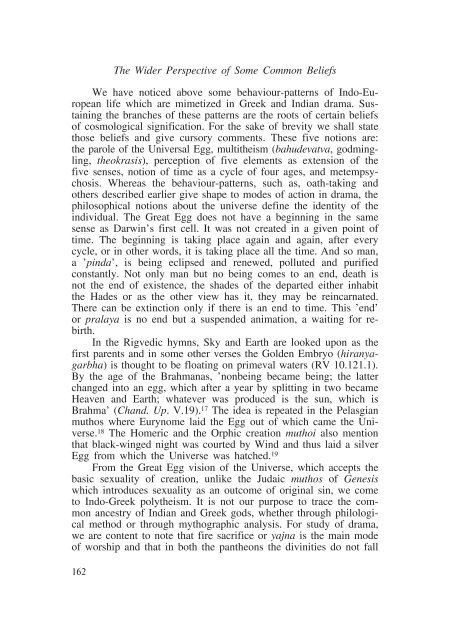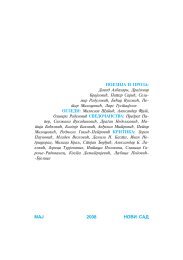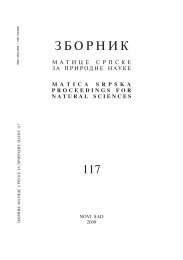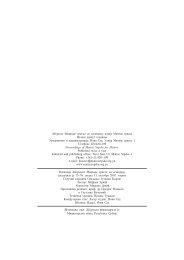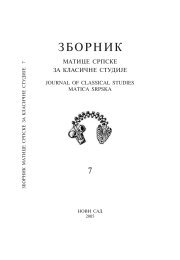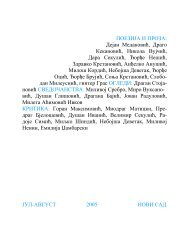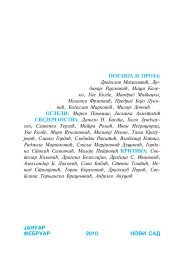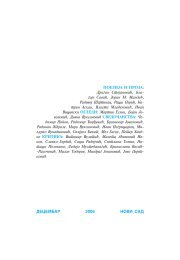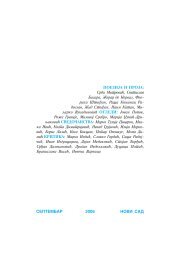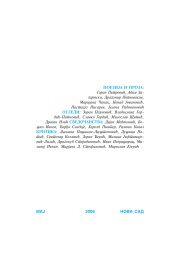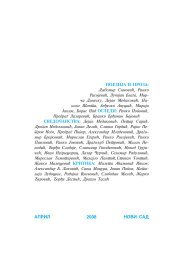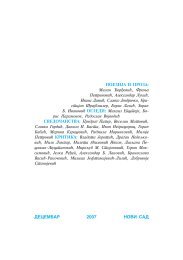Create successful ePaper yourself
Turn your PDF publications into a flip-book with our unique Google optimized e-Paper software.
The Wider Perspective of Some Common Beliefs<br />
We have noticed above some behaviour-patterns of Indo-European<br />
life which are mimetized in Greek and Indian drama. Sustaining<br />
the branches of these patterns are the roots of certain beliefs<br />
of cosmological signification. For the sake of brevity we shall state<br />
those beliefs and give cursory comments. These five notions are:<br />
the parole of the Universal Egg, multitheism (bahudevatva, godmingling,<br />
theokrasis), perception of five elements as extension of the<br />
five senses, notion of time as a cycle of four ages, and metempsychosis.<br />
Whereas the behaviour-patterns, such as, oath-taking and<br />
others described earlier give shape to modes of action in drama, the<br />
philosophical notions about the universe define the identity of the<br />
individual. The Great Egg does not have a beginning in the same<br />
sense as Darwin's first cell. It was not created in a given point of<br />
time. The beginning is taking place again and again, after every<br />
cycle, or in other words, it is taking place all the time. And so man,<br />
a 'pinda', is being eclipsed and renewed, polluted and purified<br />
constantly. Not only man but no being comes to an end, death is<br />
not the end of existence, the shades of the departed either inhabit<br />
the Hades or as the other view has it, they may be reincarnated.<br />
There can be extinction only if there is an end to time. This 'end'<br />
or pralaya is no end but a suspended animation, a waiting for rebirth.<br />
In the Rigvedic hymns, Sky and Earth are looked upon as the<br />
first parents and in some other verses the Golden Embryo (hiranyagarbha)<br />
is thought to be floating on primeval waters (RV 10.121.1).<br />
By the age of the Brahmanas, 'nonbeing became being; the latter<br />
changed into an egg, which after a year by splitting in two became<br />
Heaven and Earth; whatever was produced is the sun, which is<br />
Brahma' (Chand. Up. V.19). 17 The idea is repeated in the Pelasgian<br />
muthos where Eurynome laid the Egg out of which came the Universe.<br />
18 The Homeric and the Orphic creation muthoi also mention<br />
that black-winged night was courted by Wind and thus laid a silver<br />
Egg from which the Universe was hatched. 19<br />
From the Great Egg vision of the Universe, which accepts the<br />
basic sexuality of creation, unlike the Judaic muthos of Genesis<br />
which introduces sexuality as an outcome of original sin, we come<br />
to Indo-Greek polytheism. It is not our purpose to trace the common<br />
ancestry of Indian and Greek gods, whether through philological<br />
method or through mythographic analysis. For study of drama,<br />
we are content to note that fire sacrifice or yajna is the main mode<br />
of worship and that in both the pantheons the divinities do not fall<br />
162


